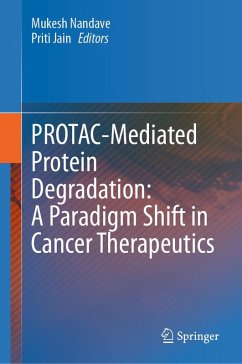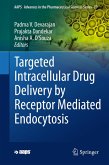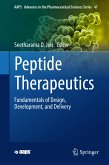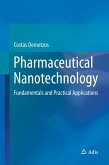This book is a comprehensive coverage of the ubiquitin-proteasome system and its involvement in cancer progression, and the application of PROTACs in different types of cancer treatment. The book discusses a unique perspective and comprehensive knowledge of the potential of PROTACs to transform cancer therapies. It provides an overview of the history, mechanisms, chemistry, design considerations, and different technologies involved in PROTACs. Additionally, it explains the ubiquitin-proteasome system, its impact on various diseases, and the principles and mechanisms of UPS. The book also describes the chemistry and design aspects of PROTACs and their role in various types of cancers. Finally, it covers the pharmaceutics aspect of formulation design, global requirements, and toxicological aspects of PROTACs. This book is targeted at cancer researchers, medical oncologists, bioinformatics, computational biologists, pharmacologists, medicinal chemists, formulation scientists, regulatory authorities, and policy makers.
Dieser Download kann aus rechtlichen Gründen nur mit Rechnungsadresse in A, B, BG, CY, CZ, D, DK, EW, E, FIN, F, GR, HR, H, IRL, I, LT, L, LR, M, NL, PL, P, R, S, SLO, SK ausgeliefert werden.









